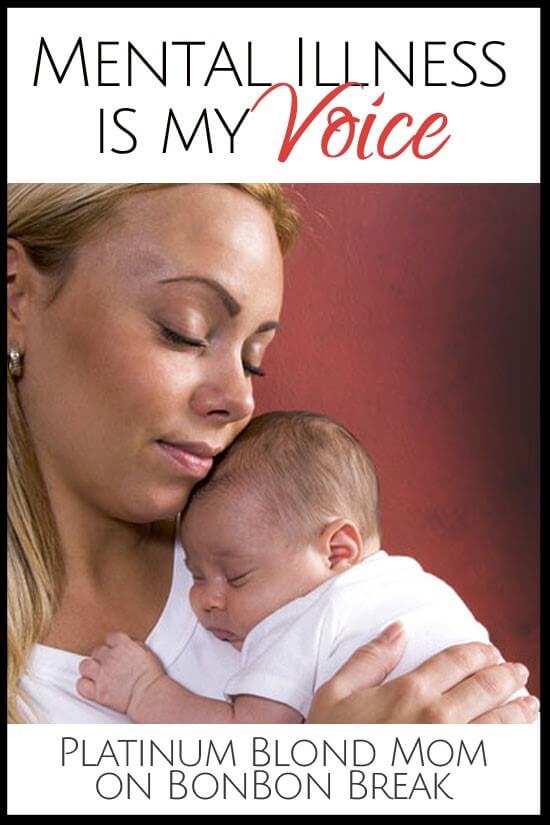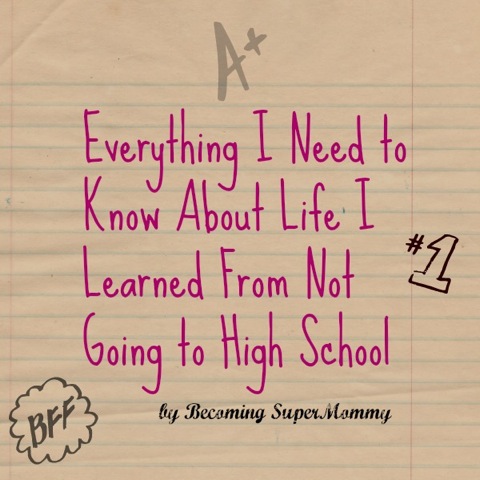Mental Illness is My Voice

Long ago, in a land far far away, lived a little girl who carried the weight of the world on her shoulders . . . Alright, that’s a bit overly dramatic. But long ago, before real life should have been real; when good hair days were comprised of a ponytail held in place by an elastic band on which were those hard, round marble looking things; when happiness was a grilled cheese sandwich for lunch – before all of that, I had a niggling sensation in the pit of my stomach that something was wrong with me. Before I even knew what it meant to “go crazy,” I had the very clear, very illuminated thought that one day I would not be like the other mommies I saw in the neighbourhood where I lived. Instead of handing out popsicles to the stray kids, I saw myself cloistered away; a sad mommy; the sound of joy grinding at my brain.
As I got older, this thought persisted. The clarity of it was frightening, and instead of replaying the visual of my sad face handing out melting popsicles to a brood of dirty-faced toddlers, my teenage self would push away the voice that said, “One day you’re going to go crazy,” and instead, I partied, starved myself, slept around, and accepted that this was normal adolescent behavior. After all, what did “going crazy” even mean? What did it look like? And was that really such a bad thing?
Life played out. The voice reminded me at the oddest of moments that my crazy was on a shelf to be taken out at a later date. I would be rocking my daughter, watching Oprah talking to other mothers who were admitting that motherhood made them feel alone and desperate (this was in the days before Postpartum Depression had a name), and I would hold my daughter close, sobbing into her soft, white-blond, fine hair. That little voice tried to whisper, but during those times when I was raging around the house, sobbing into the couch cushions so my little ones wouldn’t hear, the whisper sounded more like white noise, and my thoughts were whirring about; images of my life distorted like puzzle pieces dumped from the box.
Being diagnosed two years ago with Major Depressive Disorder, Borderline Personality Disorder, and Bipolar II – although a journey on which I wish the donkey was strong enough to carry me further up the mountain faster – is a relief. Finally, the voice is not being silenced by a gag stuffed inside of my mouth. I speak about being Bipolar not as much because I want to be a strong presence in the movement to race this purebred to the finish line, but more so because acknowledgement is powerful validation. I babble. I make no sense. I cower at reactions and consequences. But inevitably, I finally recognize the voice inside of my head as being my own, rather than that of a childhood imaginary demon.
There are demons in this war I wage against my mental illness. But now that I recognize the clarity and the purity of the voice, I understand that a lifetime of preparation was necessary to arm me with ammunition sturdy enough to deflect the arrows of the real demons who seek to take my crazy and use it as a weapon of mass destruction, rather than the empowerment it has been meant to serve.
Head to the Family Room
PIN IT FOR LATER:
This post was syndicated with permission to BonBon Break Media, LLC.






